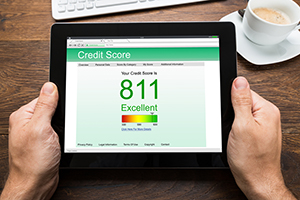Reviewed by: Tobi Meyer
While you might understand how a credit score determines your eligibility for loans and lines of credit, you might not be familiar with the mechanics of a credit report and how credit bureaus and other financial entities calculate your credit score. Learning the basics of credit scores can help you increase your credit rating and open up more financial opportunities.
According to myFICO, most credit score algorithms in credit reports take into account five areas of financial health: monies owed (30 percent of your score), payment history (35 percent), mix of credit accounts (10 percent), credit history length (15 percent), and the amount of new credit you have (10 percent). So how do you use this information to boost your credit score?

You can't control the length of your credit history -- for instance, if you're just out of college, you can only have so many years of documented history. However, you can work these factors to your advantage by maintaining your oldest accounts (such as the first credit card you opened) and avoiding opening new accounts.
Using your credit cards can help keep your score up-to-date, but you shouldn't max out all -- or any, really -- of your credit cards. Stay below your credit limits and maintain a healthy credit utilization. According to CreditCards.com, your credit score will benefit if you limit your usage to 30 percent or less of the each card's limit. For instance, if you have a card with a $10,000 limit, don't spend more than $3,000 at any given time.
A single late payment could drop your credit score by as much as 110 points if your FICO score is 780 or better. While many creditors and businesses won't report late payments until they pass the 30-day benchmark, it's best to avoid the potential for calamity. This doesn't just go for credit cards -- pay your utility bills, car notes, mortgage payments, and other bills on time to keep your credit rating up.

Maybe you have a few credit cards, but you have no other debt history. This could lower your credit score. Personal loans, auto loans, home, and business loans can all improve your credit score because they create a more diverse payment history. While you should never take on more debt than you can handle, a healthy credit utilization can help improve your credit rating.
When you open a new credit account, your credit score might drop a few points. This is especially true if you open several new accounts at one time. Not only might the credit bureaus ding you for new accounts, but this practice lowers your average account age. Think carefully before opening a new account.
Improving your credit score can make it much easier to get credit and the right interest rates when you need it, whether you're buying your first house, upgrading your car, or taking a vacation to the tropics. To learn more about credit solutions for both individuals and business owners.
Topics: Credit Management
Are you interested in contacting a local, Florida banker to discuss your individual financial needs? We’d love to speak with you. Schedule a consultation today.
Share: